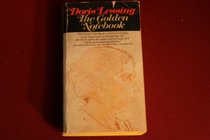Helpful Score: 2
I avoided trying to read this book for years. You may be horrified to discover that I find much of the literature by people who have won awards to be stifling. I read to learn and I read to escape. I despise pomposity.
This book is not pompous. This books is not arrogant. From the first paragraph, I was hooked. The only way I can describe it is: a womanly book for people who don't much care for chick-lit. I don't see films marketed to women and I don't read books that do the same. This book feels more like a 1960s British indie film. I watched as I read, captivated.
The dialogue is snappy and the characters are damaged, but very interesting. The whole time I kept thinking, "Wow, I see how this changed everything. I get the hype." Indeed, for perhaps the third time, I understand and appreciate the hype.
Pick up this book, now.
This book is not pompous. This books is not arrogant. From the first paragraph, I was hooked. The only way I can describe it is: a womanly book for people who don't much care for chick-lit. I don't see films marketed to women and I don't read books that do the same. This book feels more like a 1960s British indie film. I watched as I read, captivated.
The dialogue is snappy and the characters are damaged, but very interesting. The whole time I kept thinking, "Wow, I see how this changed everything. I get the hype." Indeed, for perhaps the third time, I understand and appreciate the hype.
Pick up this book, now.




